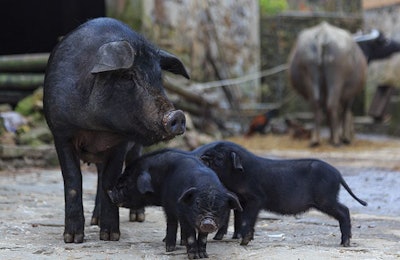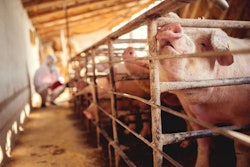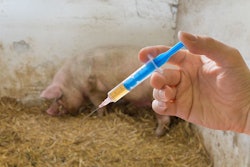
The latest presidential declaration allows the Philippines to import larger volumes of pork to balance the supply situation disturbed by ongoing African swine fever (ASF) outbreaks.
Further cases of African swine fever (ASF) have been confirmed in South Korea as many farms are subject to increased surveillance after a previous outbreak. In northeastern India, a significant number of new cases have been confirmed in pigs, while China has officially reported a new outbreak in Inner Mongolia. In Malaysia, the disease appears to be under control.
Covering the whole of the Philippines, President Rodrigo Duterte has declared a one-year “state of calamity” as a result of the ongoing ASF situation, according to the Philippine News Agency (PNA).
The declaration came after the recommendation of the National Disaster Risk Reduction and Management Council. Justifying the decision made earlier this week, the President said the declaration will facilitate the utilization of funds by both national and local governments to contain the spread of ASF, as well as to help affected areas to recover. Already, ASF has reduced the national pig population by about three million, and caused economic losses of PHP100 billion (US$2.1 billion) to the hog sector and allied industries, according to the proclamation. As a result of the shortage of domestic pork, retail prices have risen sharply for this staple food.
Since ASF was first detected in the country in 2019, it has spread to 46 provinces in 12 regions, and new outbreaks continue to emerge.
According to the new order, “there is an urgent need to address the continued spread of ASF and its adverse impacts, to jump-start the rehabilitation of the local hog industry, and to ensure the availability, adequacy, and affordability of pork products, all for the purpose of attaining food sector.”
PNA reports that an official with the provincial veterinary service in Antique has welcomed the declaration of the state of calamity over ASF. Located in the Western Visayas region, Antique province is free of ASF. However, this situation is constantly under threat from, among other factors, the importation of pigs and pork products from other parts of the country where the virus is still circulating
In a related move, the President has also this week signed an Executive Order into effect to increase imports of pork into the Philippines. Aiming to restore supplies and bring down retail prices, the order raises the minimum access volume (MAV) to 254,210 metric tons (mt) from the previous level of 54,210 mt. When previously mooted, this order was not universally welcomed in the country. Among the objections were that raising MAV would reduce the income to central government from import tariffs, Furthermore, competition from imported pork would reduce returns for the nation’s struggling pig producers.
South Korea’s pig losses from ASF approach 30,000
Recent local media reports of a new ASF outbreak at a pig farm in South Korea have been confirmed to the World Organisation for Animal Health (OIE). Two animals died and 399 were culled at the premises in Gangwon province in the northeast of the country in the first week of May. This was the first outbreak among domestic pigs since October of 2020.
Following the latest outbreak, about 170 pig farms were subjected to additional monitoring, reported Yonhap news agency.
Based on OIE data, 29,143 domestic pigs have been directly impacted as a result of mortality or culling at infected premises since ASF was first detected in South Korea in September of 2019.
Number of wild boar that have tested positive for the ASF virus currently stands at 1,405, following one additional case identified at the end of April in Gangwon province.
China registers second outbreak in Inner Mongolia
Over the past week, China’s veterinary authority has officially confirmed with the OIE a second ASF outbreaks at a farm in the Inner Mongolia autonomous region.
In the last week of April, the ministry of agriculture reported the outbreak, which led to the death of 343 pigs out of a herd of 432 animals in the Bautou city region. One month previously, ASF returned to Inner Mongolia following an absence of almost two years.
So far this year, China has reported 10 ASF outbreaks affecting domestic pigs.
India confirms ASF in Meghalaya
In recent days, The Hindu has reported the deaths of about 300 pigs in the state of Meghalaya. Mortalities could be as high as 573 animals. Cases are spread across several districts.
According to a senior official, 541 pigs were lost to the disease in the state between May and November of 2020.
Within the past few weeks, ASF has also been detected in the state of Mizoram.
No recent outbreaks in Malaysia
In Malaysia, the latest official report from the national animal health agency indicates there have been no further ASF cases in either domestic pigs or wild boar.
Since the disease first emerged in early February, there have been 28 confirmed outbreaks, all in the state of Sabah. These have involved a total of 565 pigs, and 52 wild boar. The most recent cases registered with the OIE occurred in early April.
View our continuing coverage of the global African swine fever situation.


















